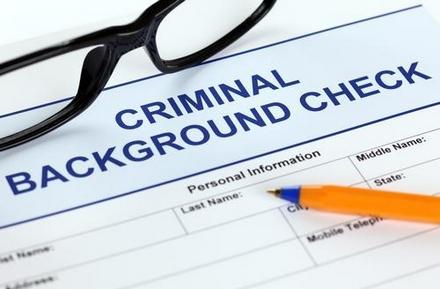TELEPHONES ANSWERED 24 HOURS A DAY
How Does Having a Criminal Record Affect Me?
 Crime certainly does not pay. Those accused of being involved in a crime face arrest - even if charges end up being dropped or dismissed - face lengthy, costly, and emotionally draining legal procedures. For those convicted of a crime, harsher consequences such as prison time or large fines should be expected. Even after serving the sentence of a conviction, if you have a criminal record, you will face challenges in your personal and professional life in the future. Here are a few things you need to know moving forward with a criminal record, and a few ways your tarnished record may affect you.
Challenges with Employment
Employers can, and often do, conduct criminal background checks before or after the hiring process. For those with a criminal record, this means landing a good job can be a serious struggle. If you have a criminal record or have had run-ins with the law, you should know that a criminal background check can reveal:
Crime certainly does not pay. Those accused of being involved in a crime face arrest - even if charges end up being dropped or dismissed - face lengthy, costly, and emotionally draining legal procedures. For those convicted of a crime, harsher consequences such as prison time or large fines should be expected. Even after serving the sentence of a conviction, if you have a criminal record, you will face challenges in your personal and professional life in the future. Here are a few things you need to know moving forward with a criminal record, and a few ways your tarnished record may affect you.
Challenges with Employment
Employers can, and often do, conduct criminal background checks before or after the hiring process. For those with a criminal record, this means landing a good job can be a serious struggle. If you have a criminal record or have had run-ins with the law, you should know that a criminal background check can reveal:
- Any misdemeanors or felonies on your record;
- Any current or past arrests;
- Court warrants;
- Federal and state bankruptcies; and
- Any marriages and divorces.
Most American colleges and universities gather information on prospective students. This may be as basic as conducting an interview or investigating an applicant's social media pages, but many universities also gather criminal information on prospective students. You may be denied acceptance into a college simply due to the fact that you have a criminal record. Similarly to employers, many universities refuse those with criminal records and cite maintaining campus safety as the reason behind the decision.
In addition to limiting your selection of universities, having a criminal record can also negatively affect your ability to receive student loans and other funding for higher learning. Finding Housing May Be Difficult Those with criminal backgrounds may find it difficult to find housing. If you are applying for public housing or some other form of subsidized housing, you will likely be required to submit to a criminal background check. You may also have difficulty finding private rentals, as landlords and property owners have the ability to screen both applicants and current residents. Regardless of your charges, a landlord or property owner can claim that having a criminal background means you are not a trustworthy tenant. To combat this, experts suggest asking landlords upfront if they are willing to rent to someone with a criminal background, if you believe they will use a screening service. If they say no, you can simply leave, and avoid paying the fees associated with background checks. Another helpful tactic is to have a letter of reference prepared by a respected community member or authority figure that can advocate to potential landlords on your behalf. Limited Access to Loans You may run into instances where your criminal background may prevent you from qualifying for loans. This is true for small business loans, university tuition loans, and mortgages. While some lenders may have more relaxed requirements, many banks and credit unions have very specific rules set to determine who is eligible for a loan. They may even require that a person have a completely clean criminal record before approving the loan. What Can You Do? Fortunately for those worried about their criminal backgrounds, there are two methods in Illinois used to clean criminal records. They are record expunging and record sealing. Both are meant to have your criminal record either destroyed or made unavailable. If you can successfully expunge or seal your records, they cannot be accessed by landlords, employers, or anyone else who may use your past record against you.The process of cleaning up your record is lengthy, confusing, and can be difficult to navigate on your own. Why put your future opportunities in jeopardy? If you are ready to start the process of expungement or sealing your records, you need the help of a skilled criminal defense attorney. The qualified team at the Law Offices of Hal M. Garfinkel LLC, Chicago Criminal Defense Attorney has handled many expungement cases, and will work to ensure your past mistakes do not come back to haunt you. Call 312-629-0669 to schedule your free consultation today and learn more about what a veteran Chicago area expungement attorney can do for you.
Sources: http://www.dmv.org/articles/how-criminal-records-affect-employment/ http://www.hrw.org/reports/2004/usa1104/9.htm https://studentaid.ed.gov/eligibility/criminal-convictionshttps://www.illinois.gov/osad/Expungement/Pages/Expungement-and-Sealing-General-Information.aspx




